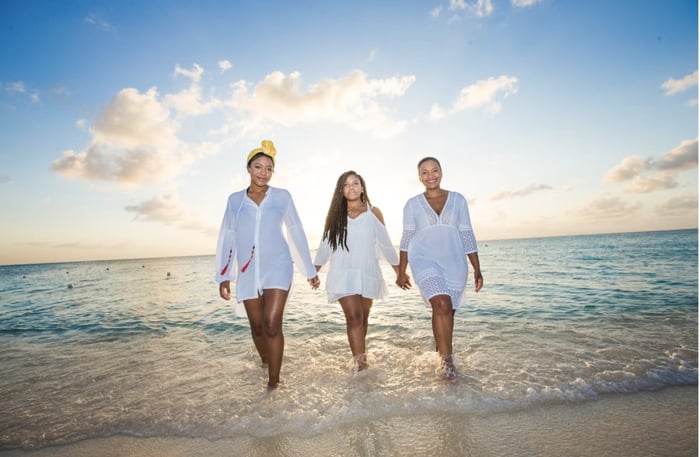The Regenerative Seascapes for People, Climate, and Nature project will be implemented in coastal and marine regions of the West Indian Ocean, in Kenya, Tanzania, Mozambique, Madagascar and the Comoros. The biodiversity degradation and fish stock depletion caused in large part by the climate crisis are major challenges for these communities. The project will directly benefit 350,000 people, including 225,000 women and 12,500 people in vulnerable and marginalized situations.
The project has three major objectives. The effort to address two of them, improving biodiversity conservation and implementing sustainable and effective management of marine protected areas, will be led by IUCN, which has world-recognized technical expertise in this area.
Mission inclusion will be responsible for the third objective: economic empowerment of women in the blue economy, i.e., sustainable use of marine and coastal resources. Building on its years of experience and achievement in gender equality, Mission inclusion will work with local partners to build the skills of women and girls in blue entrepreneurship and strengthen the voice of women’s organizations and networks to ensure that their rights are better protected.
Mission inclusion is proud to be part of this project with IUCN. By working together and sharing our expertise and experience with local communities and engaged citizens at home and abroad, we will build a more inclusive and sustainable future for all people without exception.
“We at Mission inclusion are very pleased that this funding, which will enable us to provide support for coastal and marine areas in East Africa, has been granted. This project is the culmination of a joint effort with the International Union for Conservation of Nature to create a consortium that can work in an integrated way for the benefit of people, climate and nature.”
”Carrying out innovative, impactful actions for the well-being of people in vulnerable situations in Quebec and around the world is our mission. Fighting the climate crisis and supporting local adaptation and resilience initiatives is one way to pursue our vision of an inclusive world where there is a place for everyone, and everyone is a full-fledged member of the community.” - Richard Veenstra, Executive Director, Mission inclusion
“I want to thank the Government of Canada for this vital investment. Their support will enable IUCN and our Great Blue Wall partners to help address the biodiversity and climate crises through Nature-based Solutions, and build a resilient and prosperous future for the people of the Western Indian Ocean.
Thanks to their innovative use of Nature-based Solutions for climate adaptation, initiatives like the Great Blue Wall are crucial to meet the commitments governments have made at recent UN Climate and Biodiversity Conferences. This timely investment answers the call made by African Heads of State at COP 27 for increased support to the Great Blue Wall.” - Dr. Bruno Oberle, Director General, IUCN
The project will impact all people living in coastal and marine regions of the West Indian Ocean in Kenya, Tanzania, Mozambique, Madagascar and the Comoros, a total of approximately 2 million people.

 investESG
investESG

